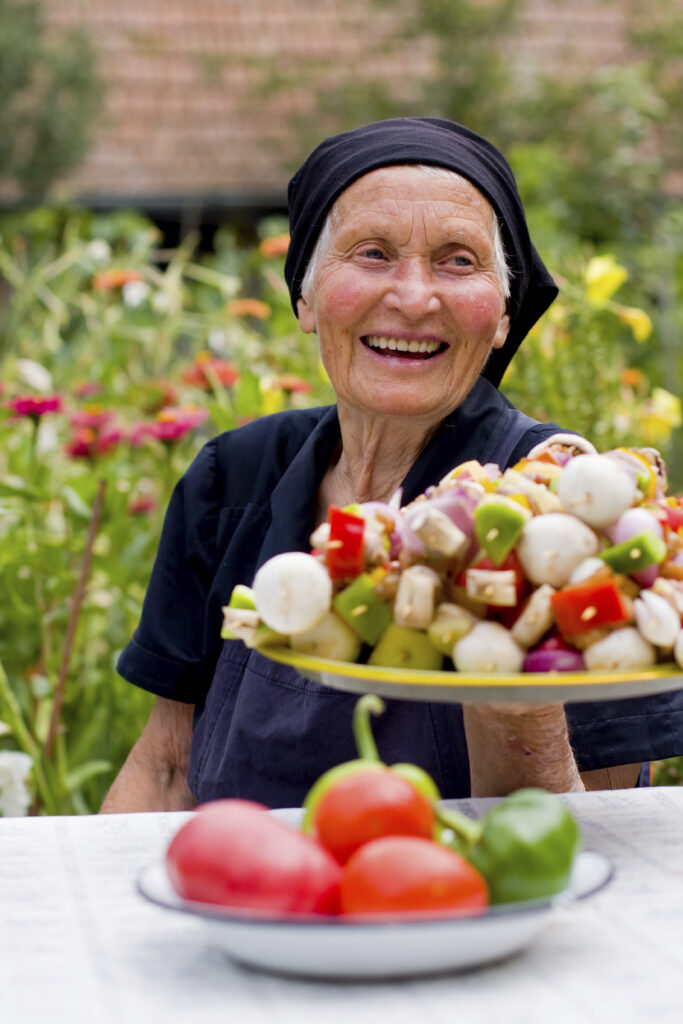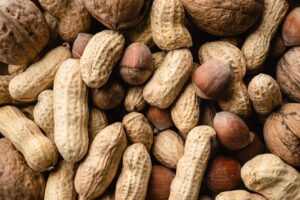How do the centenarians feed? Is there a secret to longevity, and if so, is it about diet?
Several factors appear to affect life expectancy. Research has shown that genes predict a person’s lifespan by about 25%. Nutrition, environment, exercise and other factors of our everyday life to predict the rest.
According to the professors of the Medical School of the National and Kapodistrian University of Athens, Lina Paschos (Assistant Professor of Endocrinology), Melpomene Peppa (Professor of Endocrinology), Evanthia Kassi (Professor of Biochemistry-Endocrinology), Anastasia Thanopoulos (Assistant Professor of Pathology), Eriphyle Hatziaggelakis (Professor of Pathology-Metabolic Diseases) and Theodora Psaltopoulos (Professor of Therapeutic-Metabolic Diseases) Preventive Medicine) you can not change your genes, but improving the diet will make you healthier and could make a difference in life expectancy.
And studies show that even if you start after middle age or later make improvements, you can still add a decade or more to your life expectancy.
Five places in the world have been identified where people have extremely long life expectancy, often living to 100 or more. These areas, called “Blue Zones” include:
• the Nicoyan peninsula in Costa Rica,
• the town of Loma Linda in California,
• the Okinawa islands in Japan,
• Sardinia in Italy and
• Ikaria in Greece.
At first glance, diets, lifestyles and habits of people in these “Blue Zones” may seem quite different to each other.
Diet at “Blue Zones”
Many of Sardinia’s residents live in mountainous terrain, where they hunt, fish and collect their own food, such as goat milk, barley and garden vegetables. The long-lived inhabitants of Loma Linda are part of a close community that avoids caffeine and alcohol and largely follow a vegetarian diet, while in Ikaria people follow a typical Mediterranean diet with many fruits and vegetables and moderate quantities of meat and seafood.
The people of Okinawa have historically eaten a plant-based diet. They get many of their calories from sweet potatoes and fresh vegetables that they often collect from their gardens. Meanwhile, the centuries-old inhabitants of Nicoyan tend to eat traditional Meso-American diet rich in starchy plant foods such as corn and beans.
The Principles of Centenarians’ Nutrition
While their eating habits are different in many aspects, they share at least four common parameters.
You can incorporate these common nutritional principles of centenarians into your life by doing the following:
- Consume lots of legumes. Legumes are especially popular with people living in “Blue Zones”. Soy is an important part of the traditional diet in Okinawa, as is the fava in Sardinia and the black beans in Nicoyan.
- Eat a handful of nuts daily. Nuts are rich in vitamins, fiber and minerals and are an essential nutritional ingredient for many residents of Blue Zones. Walnuts and almonds, for example, are popular in Ikaria and Sardinia, while in Nicoyan they adore peanuts.
- Breakfast as king, lunch as prince and dinner as poor. People in most “Blue Zones” tend to eat most of their calories early in the day rather than later on. People in Okinawa traditionally eat a rich breakfast, a moderate lunch and do not even have dinner.
- Eat meals with your family. In “Blue Zones” it is common for families to eat at least one daily meal together, which is usually their lunch or dinner. Although it is difficult for families running a busy life to often take meals together, it is worth trying to do so. Families that eat together tend to eat much more nutritionally while eating more slowly. They consume more fruits and vegetables and their children are less likely to develop obesity.
Diet alone is not, of course, the only factor associated with high life expectancy, the teachers concluded. Research has shown that people living in communities where longevity is common usually have strong links with friends and family, a sense of purpose outside of themselves, and a positive outlook for life. They engage in high levels of physical activity and spend a lot of time outside the home, with gardening, agriculture or engaging with other people in their communities.
With information from amna.gr







